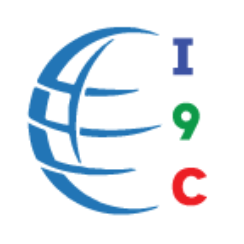# ISO 9001 Certification in Bangladesh: A Comprehensive Guide
## Introduction
In today’s competitive business landscape, the quest for quality management is more vital than ever. Organizations globally are adopting various frameworks to enhance their processes, satisfy customer needs, and achieve operational excellence. One such framework is ISO 9001, an international standard that specifies requirements for a quality management system (QMS). In Bangladesh, ISO 9001 certification has become increasingly popular among businesses aiming to establish credibility and improve overall performance. This article delves into the significance of ISO 9001 certification in Bangladesh, its core components, cost implications, and the typical timelines involved in obtaining this certification.
## What is ISO 9001? of ISO 9001 include:
1. **Customer Focus**: Organizations should understand and meet customer needs consistently.
2. **Leadership**: Leadership must establish a unity of purpose and direction.
3. **Engagement of People**: Involving people at all levels enhances the organization’s capability to create value.
4. **Process Approach**: Successful organizations manage activities as processes that work as an integrated system.
5. **Improvement**: Organizations should have a persistent focus on improvement.
6. **Evidence-Based Decision Making**: Decisions should be based on the analysis of data and information.
7. **Relationship Management**: Beneficial relationships with interested parties enhance the organization’s ability to create value.
Achieving ISO 9001 certification signals to stakeholders that an organization is committed to quality and continuous improvement.
## Costs of ISO 9001 Certification in Bangladesh
The cost of obtaining ISO 9001 certification in Bangladesh can vary significantly based on several factors, including the size and complexity of the organization, the scope of the QMS, and the certification body selected. Here’s a breakdown of the potential costs:
1. **Consultancy Fees**: Organizations often hire consultants to assist with the implementation of the QMS. Depending on the consultancy firm’s reputation and expertise, costs can range from $500 to $5000 or more.
2. **Training Costs**: Employees will need training on quality management principles and ISO 9001 requirements. This can cost anywhere from $100 to $1000 per employee.
3. **Internal Auditor Expenses**: If your organization conducts internal audits to assess compliance, this may incur additional costs. Training for internal auditors can cost between $300 to $800.
4. **Documentation Expenses**: The cost incurred for creating necessary documentation, manuals, policies, and procedures is another factor, and this may vary widely depending on the organization’s complexity.
5. **Certification Fees**: Certification bodies charge fees for the certification process, which usually starts from $1000 and can exceed $3000 depending on the organization’s size and the scope of operations.
## Time to Obtain ISO 9001 Certification
The timeline for acquiring ISO 9001 certification can depend on several factors, including the readiness of the organization, the complexity of the processes, and the availability of resources. On average, the time frame for certification can be outlined as follows:
1. **Initial Assessment**: 1-2 weeks for an external consultant or a team of internal auditors to review current practices.
2. **Implementation Phase**: Depending on the organization’s readiness, this phase can take anywhere from 3 to 6 months. This period is crucial for developing the QMS, conducting training, and documentation.
3. **Internal Audit and Management Review**: An additional 1-2 weeks might be needed to conduct an internal audit and address any issues identified.
4. **Certification Audit**: The final audit conducted by the certification body typically takes 1-2 days, depending on the scope and size of the organization.
Overall, organizations can expect the entire process to take anywhere from 6 months to 1 year to achieve certification.
## Documentation Requirements for ISO 9001
Documentation is critical in ISO 9001 implementation as it provides clear guidelines for processes and ensures that all employees are aware of their responsibilities. The primary documentation required includes:
1. **Quality Policy**: A formal statement outlining the organization’s commitment to quality.
2. **Quality Manual**: A document describing the quality management system and its scope.
3. **Procedures**: Detailed descriptions of various organizational processes.
4. **Work Instructions**: Step-by-step guides for performing specific tasks.
5. **Records**: Evidence of compliance with quality objectives and processes, such as training records or audit reports.
Costs associated with documentation can vary based on the complexity of the processes and whether external help is employed to develop these documents.
## Conclusion
ISO 9001 certification offers significant benefits for organizations in Bangladesh, including improved product quality, enhanced customer satisfaction, and streamlined operations. While the initial investment in terms of time and money may seem daunting, the long-term advantages of efficient quality management practices are undeniable. As businesses continue to strive for excellence, embracing standards like ISO 9001 will play a crucial role in their success and sustainability in the marketplace. Therefore, organizations seeking to enhance their quality management systems should consider the certification process as a pivotal step toward achieving operational excellence and competitive advantage.
ISO 9001 is part of the ISO 9000 family of standards, focusing on quality management systems. It is designed to help organizations ensure they consistently meet customer and regulatory requirements and improve their operational efficiency. The key principles
